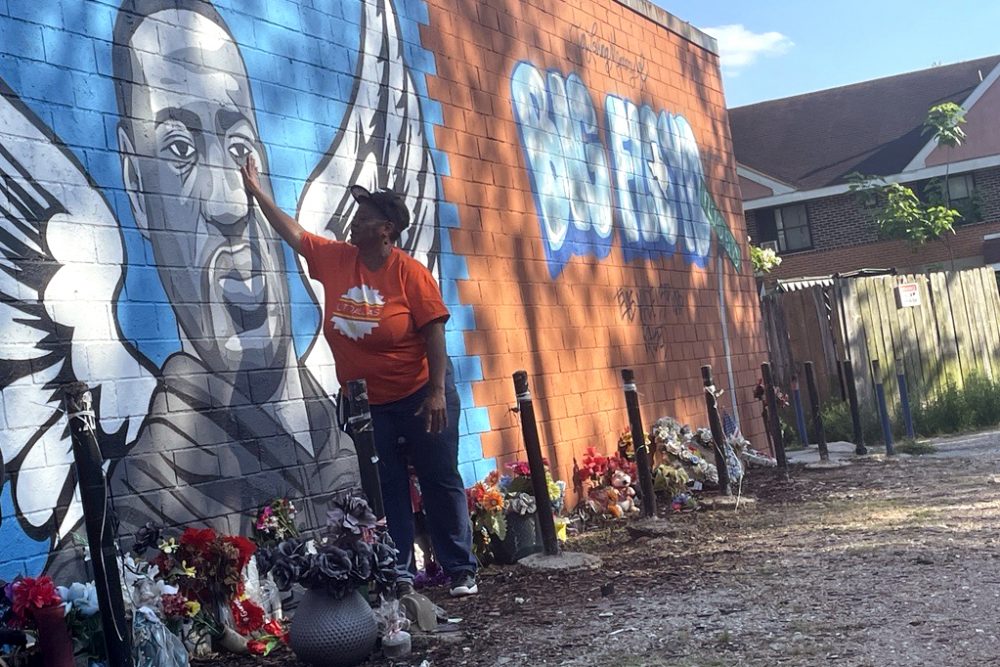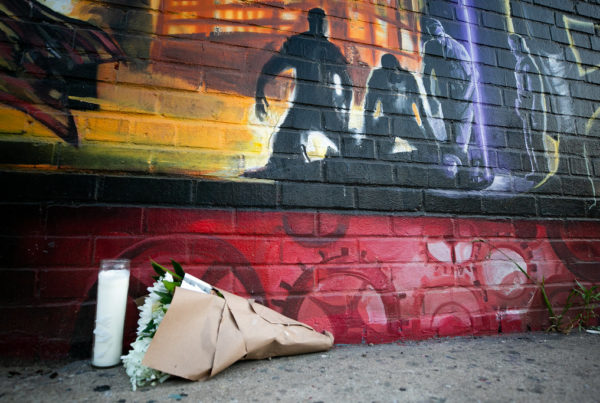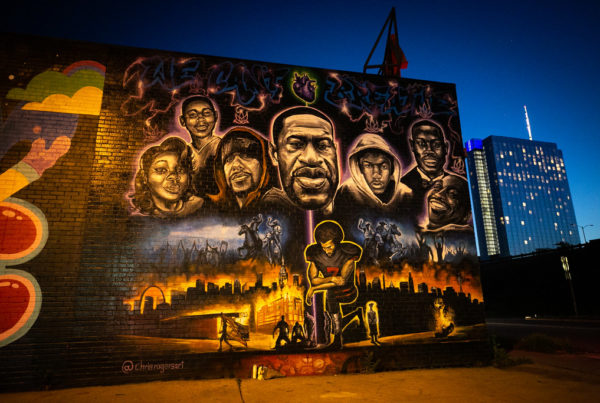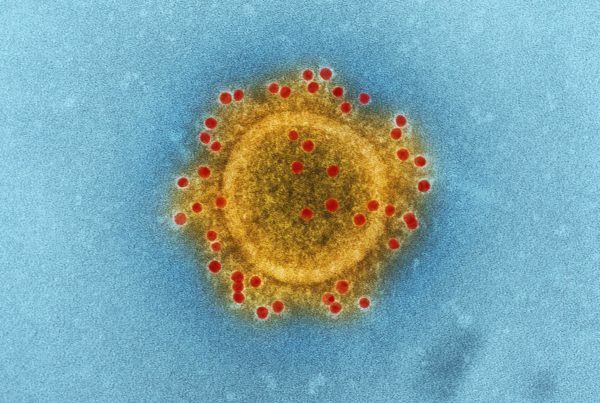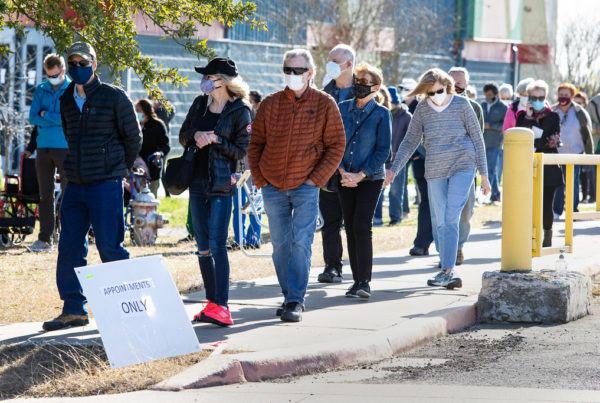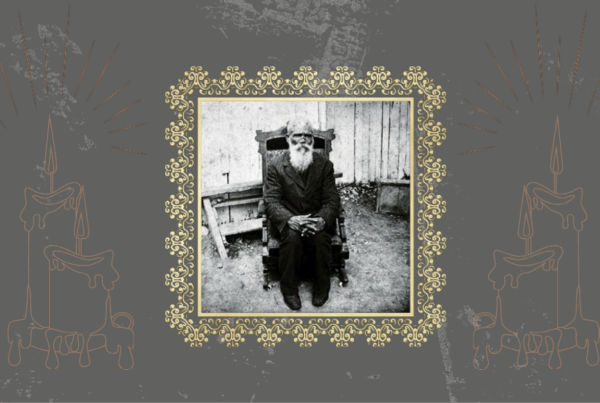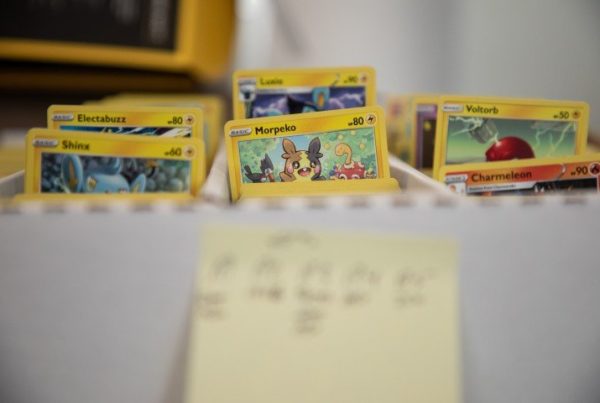In Houston’s historically Black Third Ward Tuesday afternoon, a crowd gathered around George Floyd’s mural, where a black-and-white, winged image of Floyd is surrounded by a halo with the words: “Forever Breathing In Our Hearts.”
But for the first time in almost a year, the mood outside the Scott Food Mart at 3341 Winbern St. was not one of grief, but of celebration: Derek Chauvin — the Minneapolis Police Officer who put his knee on the back of Floyd’s neck last year for more than nine minutes as the man shouted “I can’t breathe” — had just been found guilty of murder and manslaughter.
Larry Masters, 60, said it came as a surprise — he did not believe Chauvin would face any consequences for Floyd’s death, having seen so many instances of police killings gone unpunished in the past. But he said the surprise was a welcome one.
“Justice was served today,” Masters said. “Because this is a long time coming. They’ve been doing this for years and years and years. From generation to generation. We’ve been screwed over, we’ve been mistreated, I mean they just be getting away with crime.”
“It’s a blessing,” he said, before repeating it two more times: “It’s a blessing. It’s a blessing.”
MORE | Derek Chauvin Found Guilty Of George Floyd’s Murder
In Floyd’s hometown of Houston, the verdict brought with it a chance to exhale: A city that had come out to protest in the thousands last summer — in an unprecedented series of demonstrations that lasted days in downtown Houston and surrounding neighborhoods — now breathed a sigh of relief, as what some in the community considered an impossible outcome had now become a reality.
Chauvin was convicted on three counts: second-degree murder — unintentional; third-degree murder; and second-degree manslaughter.
Floyd’s May 25 death was captured on video, and sparked widespread outrage and civil unrest across the country. In the video, Floyd could be heard in his final moments telling Chauvin, “I can’t breathe.”
Those moments were repeatedly played for the jury in Chauvin’s trial, which lasted for three weeks. The defense argued that Chauvin was acting as a “reasonable police officer” — a phrase repeated by the ex-officer’s attorney Eric Nelson in his closing remarks as he tried to persuade the jury. The prosecution meanwhile framed Chauvin’s actions as going against police protocol.
Jury deliberation lasted for less than 24 hours before the verdict was handed down.
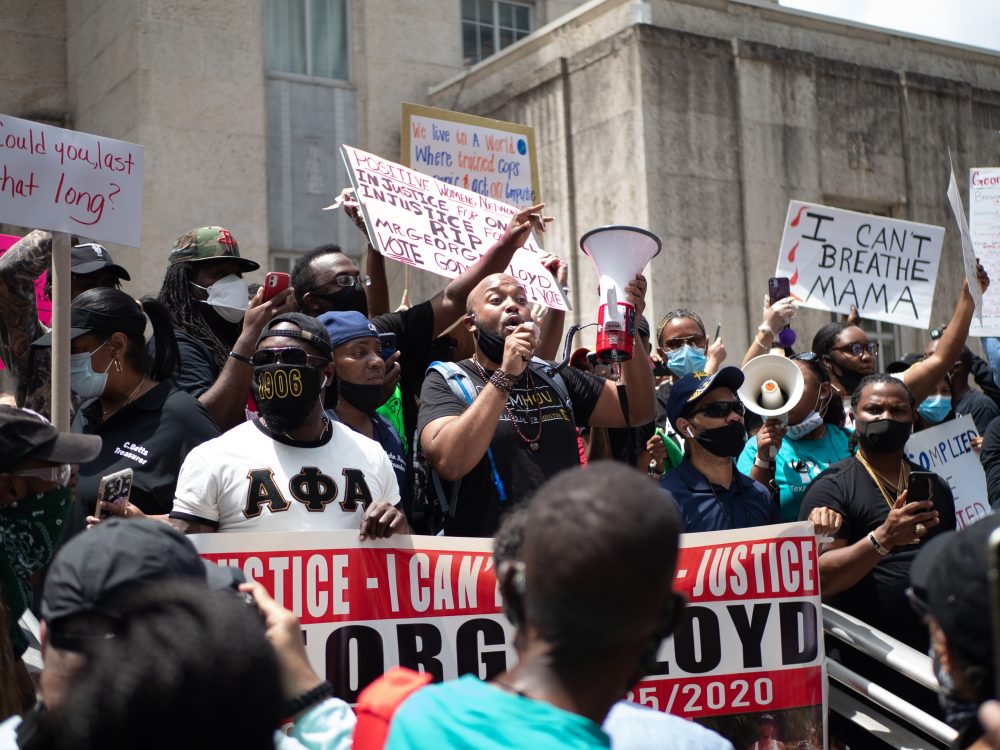
Protesters from Black Lives Matter Houston outside of Houston City Hall on May 29, 2020. Hundreds of people marched in downtown Houston in response to the death of George Floyd at the hands of
Floyd grew up in the Cuney Homes, where he was a multi-sport athlete at Jack Yates High School. He later went on to make music in Houston’s chopped and screwed hip hop scene, collaborating with the late Houston legend DJ Screw, and eventually moved to Minneapolis to start a new life, according to family and friends.
Harris County Judge Lina Hidalgo said that in Floyd’s hometown people will continue to feel his loss, and that his legacy would help propel criminal justice reform forward.
“We will never forget his death, and we won’t forget what it represents,” Hidalgo said. “While the justice system served its purpose today, there is still so much more work to be done toward a smarter and fairer and more effective criminal justice system. As we work on that, George Floyd’s legacy will be with us every step of the way.”
MORE | Death Of George Floyd Brings Renewed Scrutiny To Spate Of Houston Police Shootings
At a press conference alongside law enforcement, Mayor Sylvester Turner said he too believed justice had been served. But he added that it was no time to celebrate.
“The Floyd family has waited for almost a year for this verdict,” Turner said. “But I will quickly say that they will experience the loss of their loved one, George, for the rest of their lives.”
For those who knew Floyd, like childhood friend Travis Cains, it was a bittersweet moment.
Standing near the Third Ward mural crying “tears of joy,” Cains said he didn’t hate Chauvin, but that he was glad the former officer would face justice.
“You are reaping what you sow,” Cains said. “And God bless you, know what I mean, on your travel. I know in my heart the vengeance of the lord.”
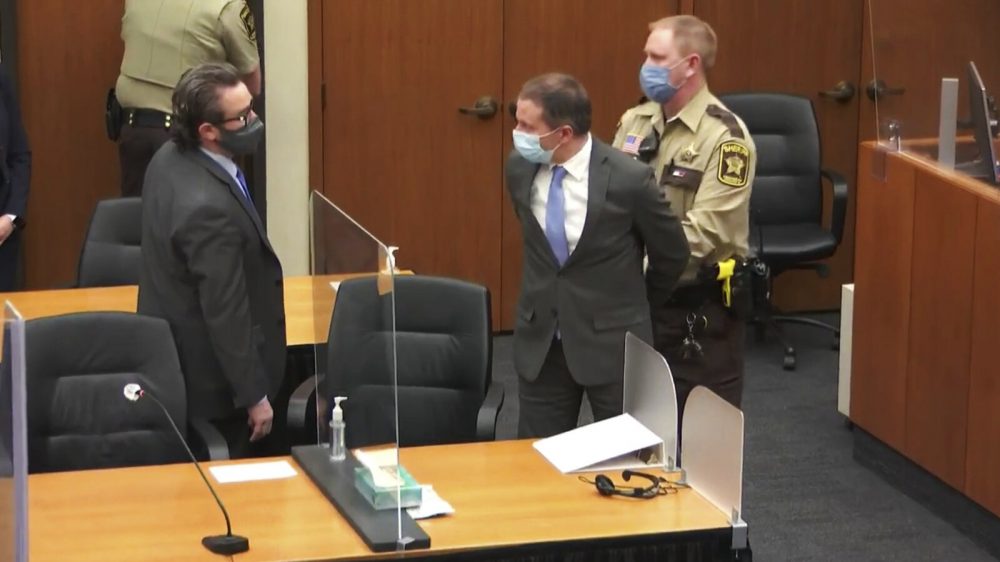
Former Minneapolis police officer Derek Chauvin is taken into custody as his attorney, Eric Nelson, looks on after the verdicts were read on Tuesday at Chauvin’s trial for the 2020 death of George Floyd. Court TV / AP
Kim Hewitt, 46, said she too knew Floyd as a child, and that she wanted Chauvin to be treated the way she felt the Black community has been treated by the criminal justice system.
“I’m not happy until I get the time, and they put him in the population, and they treat him like a criminal,” Hewitt said. “Like they look at us in the community as criminals.”
Rowena Jesse, 62, said she did not know Floyd. But his story was familiar to her: She said her father was killed by a Houston police officer at a young age.
“All of this is in my soul ever since I was a little girl,” Jesse said. “And I can just imagine what he went through, and what my father went through.”
Jesse, who lives in Third Ward, said that the verdict brought with it a sense of catharsis after years dealing with the trauma of police violence.
“When I saw that happening to him I felt it like I felt my dad’s death, and it takes a lot out of me,” Jesse said through tears. “So when I seen that justice is done, that’s a start. That’s all we wanted done, is justice. Just for what’s right.”
Additional reporting by Andrew Schneider.


